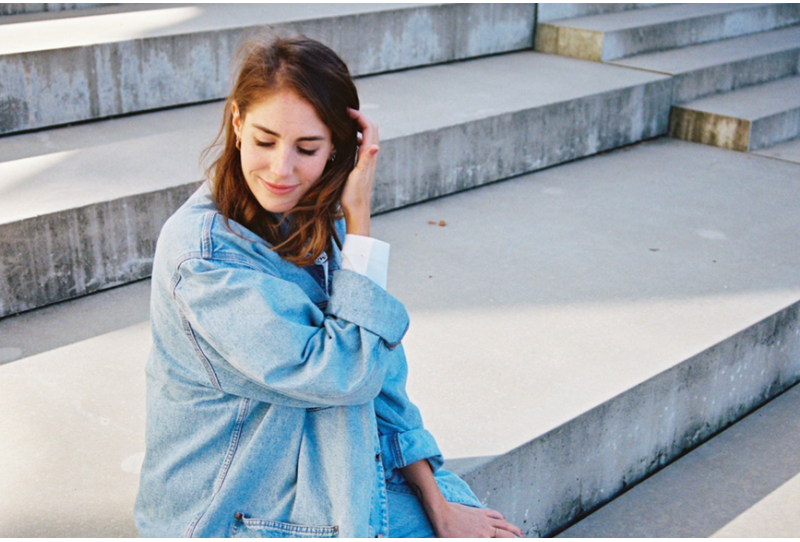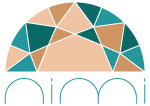
Marie Jane, a talented content creator based in Geneva, offers simple ideas for contributing to a more sustainable world
Are you familiar with Marie Jane's blog, Don't Be Trashy?
She is a wonderful person and a gifted content developer who has a significant emphasis on sustainability.
I met her while working on a video project together, and she immediately radiated with an energy that transforms the world.
She is also a really funny and nice person. In regards to transitioning toward an eco-friendly lifestyle, Marie Jane’s motto is one day at a time, one step at a time. We don’t need two hundred people doing zero waste perfectly, we need millions doing it imperfectly.
We asked her:
Through your blog, we can learn to live in a more sustainable way. Thanks to the content that you share with us, we are willing to change our habits and we are not afraid of not being able to do it. Can you talk us through your journey so far?
DBT (Don’t Be Trashy) has been an amazing journey. What most people don’t know is that I started this project at a very difficult time in my life. I was working in an unhealthy environment and went through the loss of a loved one, after a very long and painful illness.
After I lost my job, my friends motivated me to start DBT. They knew I wanted to create this project for quite some time, but didn’t have the mental space and courage to do so.
I had always shown an aptitude to take photos and make videos, had a good sense of aesthetics, therefore they believed in my abilities to become a content creator.
Also, I was quite outspoken about my passion for sustainability and always sharing knowledge on this topic among my circle.
At first, I didn’t want to put too much pressure on myself as it can be a mechanism that kills my inspiration. I decided to do something fun and light, without any expectations. But quickly, it became a big part of my life, and I never stopped wanting to progress and evolve. Video editing is fascinating, there’s so much you can do today – it became a challenge, the challenge to always produce better content.
With DBT, I met so many amazing people and experienced so many different adventures. The craziest so far was visiting a chicken slaughterhouse.
We have found one very nice quote on your site, from Julien Vidal: "Changing your world is changing the world." Do you think that every one of us can contribute to a more sustainable world?
Julien Vidal is one of my favorite sustainability author, I’m currently reading his last book “2030 Glorieuses” and an article will be out on the website soon. He always includes the most inspirational quotes in his essays.
To circle back to your question, I find it amusing when people say that building a more sustainable future is the responsibility of industries, of politics, of CEO’s and so on; as if they were artificial entities.
Industries are built and led by humans, responding to the demands of other humans.
Politics are drafted and led by humans, they respond to the lobby of industries and sometimes the pressure of communities.
CEO’s and guys like Elon Musk are also humans. All these people have the same basic human needs, families, friends, loved ones, feelings, success, failures etc.
No matter how you look at it, the situation we are currently in is solely the result of human activity. Therefore, if we got ourselves in this situation, only us can tip the scales.
To sum up, the answer to your question is yes, absolutely, everyone can do something – what is going to differ is the scale. The more power of influence, time and financial means you have, the bigger the potential of positive impact and responsibility to take action.
During your "Don't be trashy" swap, what change in your life has brought you the most pleasure?
DBT gave me the opportunity to discover a ton of local brands, therefore I’d say the biggest positive impact in my life since starting this project is toward circular economy and local consumption.
Geneva is a small town, but when you don’t take time to stay informed about regional actors and concepts, it can easily seem like not much is going on, when in reality, there’s a ton of sustainable options within our reach.
Why should all businesses embrace sustainability?
Aside from being an absolute necessity for our planet, the biodiversity as well as humans, sustainability presents a lot of financial benefits for businesses.
One of the central threads of sustainability is to consume less, therefore, for a business this translates to cost saving. If you use less energy, less paper, less stationary, less water and so on – well, on the long term, you will save money – plain and simple.
Sometimes, a sustainable choice can require an important investment at first, for example installing solar panels. But once your solar panels are up and running, the energy from the sun is F-R-E-E.
Therefore, from an ethics, marketing and financial point of view, sustainability is a definite win-win-win opportunity for businesses.
Can you give us five simple tips to contribute to a more sustainable world?
1. Transition to a vegetarian diet (80% minimum).
This is the easiest and hardest at the same time. Food is such a personal freedom and resonates deeply in our emotional behavior. Food is linked to pleasure, to tradition, to habits. In Switzerland, we are slightly late on this growing trend, considering there are only 250'000 vegetarian people in the country out of approximately 8.4 million citizens (we rank second to last in Europe). India is ranked top in the world with 38% of the total population being vegetarians.
The impacts of intensive farming and commercial fishing are catastrophic, from numerous aspects, which include
· Greenhouse gas emissions
· Biodiversity Loss
· Deforestation
· Natural resources use, notably water
· Pollution
· Animal cruelty
· Bycatch
Another major reason to transition toward a vegetarian diet is health. More and more, the over consumption of animal products are linked to various types of cancer, neurodegenerative diseases (Alzheimer’s, dementia), diabetes, auto-immune diseases (Crohn’s, rheumatoid arthritis), cardiovascular diseases and more.
2. Buy local goods, follow the seasonal fruits & vegetables.
3. Favor eco-friendly transportation whenever possible: train journey instead of flying for trips, walking, cycling or public transport instead of driving for day-to-day.
4. Buy less, and when necessary, favor second hand.Today, second hand products are much more accessible thanks to the growth of online platforms such as Facebook Market Place or Instagram. You also have cooperatives such as La Manivelle, which stimulates community engagement with a borrowing systems that operates like a public library for objects.
5. Transition to sustainable energies at home, install energy saving utilities in your house such as LED bulbs and Water Saving Devices that you can easily. The SIG have a full program called Eco21, available to citizens and businesses, through which they offer the full energy saving process for free (Eco21).

Source : https://www.instagram.com/projet_pangolin
You can discover great videos and posts on Don’t Be Trashy Instagram page and if you need a professional photographer, film maker, event and video producer, don’t hesitate to work with Marie Jane.
Marie Jane produces different kinds of videos, some are front cam talks about any sustainability topics, brands or movements – some are discovery videos where she interviews local businesses owners or sustainability experts. The general approach and vibe is being kind, funny, tolerant and inclusive.

